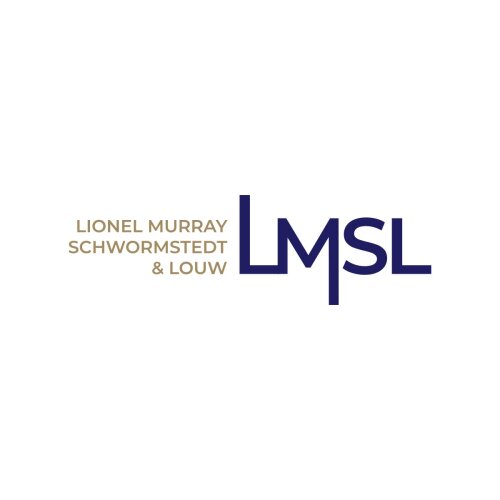Best Data Center & Digital Infrastructure Lawyers in Cape Town
Share your needs with us, get contacted by law firms.
Free. Takes 2 min.
List of the best lawyers in Cape Town, South Africa
About Data Center & Digital Infrastructure Law in Cape Town, South Africa
With Cape Town established as a technology and innovation hub in South Africa, the demand for robust data centers and advanced digital infrastructure has grown exponentially. Data center law in Cape Town covers a broad spectrum, including regulatory compliance, digital security, property use, cloud services, data privacy, and more. Legal frameworks are needed to support reliable data hosting, ensure business continuity, and protect sensitive information for both private and public sector organizations. Investors, service providers, and end-users all have legal interests that must be safeguarded by compliance with national and local regulations.
Why You May Need a Lawyer
Legal guidance is crucial in the rapidly evolving field of data centers and digital infrastructure. Common situations that require legal assistance include:
- Negotiating or drafting service level agreements for data hosting or colocation services
- Assistance with compliance with national data protection laws, such as POPIA
- Addressing cybersecurity breaches, data losses, or unauthorized access incidents
- Managing disputes over service interruptions, liability, or jurisdiction
- Guidance on procurement and vendor contracts for hardware, software, and connectivity
- Advising on property acquisition, zoning, or environmental regulations for new data center construction
- Intellectual property protection related to proprietary software or digital infrastructure solutions
- Cross-border data transfer issues, especially for international businesses
Local Laws Overview
Cape Town's regulatory framework affecting data centers and digital infrastructure is influenced by both national and municipal laws. Key legal aspects include:
- Protection of Personal Information Act (POPIA): South Africa's main data privacy law governs the processing, storage, and transfer of personal information, impacting how data centers handle client data.
- Electronic Communications and Transactions Act (ECTA): This law requires operators to ensure the integrity and security of electronic communications and records.
- Municipal Zoning and Building Regulations: Location of data centers must comply with local bylaws on zoning, environmental considerations, and infrastructure development.
- Cybercrimes Act: This legislation sets out offences relating to cybercrimes, including unauthorized access, cyber fraud, and the responsibilities of service providers in assisting investigations.
- Taxation and Investment Incentives: There are tax rules and sometimes incentives tied to technology investments which can impact the cost and structure of digital infrastructure projects.
- Power and Connectivity Regulations: Data centers are reliant on stable electricity and fast connectivity, so compliance with energy and telecommunications regulations is important.
Frequently Asked Questions
What qualifies as a data center in South African law?
While there is no single legal definition, data centers are generally considered facilities that house IT equipment and store, process, or transmit data on behalf of clients or users, subject to various technical and legal compliance requirements.
Are there restrictions on the location of data centers in Cape Town?
Yes, location is subject to municipal zoning laws, environmental impact assessments, and, sometimes, special licensing or permits, particularly for areas with significant infrastructure or environmental sensitivities.
What data protection standards apply to data centers in Cape Town?
Data centers must comply with the Protection of Personal Information Act (POPIA) and the Electronic Communications and Transactions Act (ECTA), which mandate the confidentiality, integrity, and lawful processing of personal information and electronic data.
How do I ensure my cloud service provider complies with local laws?
You should have clear contractual terms that specify compliance with POPIA, jurisdiction for dispute resolution, data breach notification procedures, and data localization obligations, if applicable.
What legal steps should I take before building a new data center?
You should secure appropriate zoning permissions, complete an environmental impact assessment if required, ensure compliance with building codes, and confirm that your energy and connectivity plans meet regulatory standards.
Who is liable for data breaches under South African law?
Liability can fall on both the data controller (the entity that determines how and why data is processed) and the data processor (such as the data center operator), depending on who was negligent or in breach of statutory obligations.
Can data be transferred outside South Africa from a Cape Town data center?
Yes, but cross-border data transfers are regulated under POPIA. Data can generally only be transferred where similar data protection standards are in place, or with informed consent from the data subject.
What are the penalties for non-compliance with data protection laws?
Penalties for non-compliance with POPIA can include administrative fines, enforcement notices, reputational damage, and even criminal prosecution in severe cases of negligence or gross misconduct.
Are there government incentives for establishing digital infrastructure in Cape Town?
Certain investment incentives, such as tax allowances for strategic infrastructure projects and business support from local economic development offices, may be available depending on the size and impact of the project.
What should I do if I experience a cybersecurity incident at my data center?
Immediately engage your legal counsel to assist with compliance regarding breach notifications, containment processes, reporting requirements under POPIA, and managing communication with affected parties and regulators.
Additional Resources
Consider the following bodies and organizations for assistance and up-to-date information:
- Information Regulator (South Africa) - oversees implementation of POPIA
- City of Cape Town - Economic Opportunities and Asset Management Directorate
- South African Department of Communications and Digital Technologies
- South African Communications Forum
- Western Cape Government Department of Economic Development and Tourism
- Tech industry associations such as the Internet Service Providers Association (ISPA)
Next Steps
If you require legal assistance in the field of data center and digital infrastructure in Cape Town:
- Gather all relevant documents related to your project, service, or issue
- Identify your objectives and the specific legal concerns you have
- Contact a law firm or attorney with experience in IT law, infrastructure, or data protection
- Meeting with your chosen professional, discuss compliance, risk, and contractual matters
- Follow through with recommended actions, including applying for permits, adjusting contracts, or reporting incidents as needed
- Continue to monitor legal developments in this fast-moving sector to ensure ongoing compliance
Seeking early legal advice can help prevent costly disputes and ensure your data center or digital infrastructure project runs smoothly within the regulatory landscape of Cape Town, South Africa.
Lawzana helps you find the best lawyers and law firms in Cape Town through a curated and pre-screened list of qualified legal professionals. Our platform offers rankings and detailed profiles of attorneys and law firms, allowing you to compare based on practice areas, including Data Center & Digital Infrastructure, experience, and client feedback.
Each profile includes a description of the firm's areas of practice, client reviews, team members and partners, year of establishment, spoken languages, office locations, contact information, social media presence, and any published articles or resources. Most firms on our platform speak English and are experienced in both local and international legal matters.
Get a quote from top-rated law firms in Cape Town, South Africa — quickly, securely, and without unnecessary hassle.
Disclaimer:
The information provided on this page is for general informational purposes only and does not constitute legal advice. While we strive to ensure the accuracy and relevance of the content, legal information may change over time, and interpretations of the law can vary. You should always consult with a qualified legal professional for advice specific to your situation.
We disclaim all liability for actions taken or not taken based on the content of this page. If you believe any information is incorrect or outdated, please contact us, and we will review and update it where appropriate.









